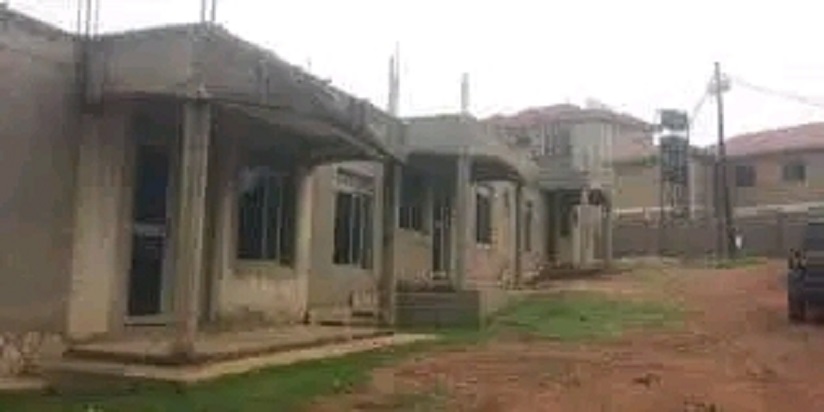House under construction/Courtesy photo
By Denis Jjuuko
When I left university, my friends and I rented a three-bedroom house somewhere within a walkable distance of the Kampala central business district. Each of us had a bedroom but we shared the living room, kitchen and bathrooms.
We equally shared the costs but also avoided stuff we couldn’t individually afford at the time. One TV set was, for example, enough for all of us. One of our cheeky friends named it Ujamaa house—after Julius Nyerere’s socialist model.
I was thinking of a better way we can have ‘Ujamaa’ in Uganda today but at an individual level. As individuals, it is easier to do certain things than always waiting for government to organize us.
There is increased pressure on land in Kampala and its surrounding areas due to population pressures and the concentration of meaningful economic activity within the radius of about 80km of Kampala.
So many people are buying land further away from the city where it (land) is more affordable largely to build residential houses and even commercial structures. The nearer the land to Kampala city, the more expensive it becomes.
Many people with land nearer Kampala struggle either to develop it or sell it. This is because, the tradition has been largely to buy land which is either empty without any structures or taking over the land and its structures.
But these expensive areas are full of incomplete structures. It is very common to find somebody who built a house or commercial structure and failed to complete it. Others take years to complete which means tying up capital which would have been used in other ventures.
Yet we now have the condominium law which allows multiple ownership of structures on the same piece of land. The most common application of the condominium law has been the construction of apartments where units are sold to different people.
However, we can flip this even where we don’t have the resources to build structures with multiple floors and many apartments. Imagine if you bought a plot of land today anywhere in metropolitan Kampala or any major town where you live to build a residential house for your family. It may be a bungalow or even a storied house.
But the area in which you are building is increasingly becoming expensive. So, what if you designed a house that can allow you to build for yourself but then sell the space above what you don’t need to somebody else? This would require constructing a storied building with the foundation strong enough to enable other people to build on top.
This would have to be planned with the architect and the civil and structural engineers. You build the house you need and as the city expands and the area in which you live becomes more valuable, you sell to somebody else to build their house on top. This would be attractive to people who may not want to live far away from the city and don’t necessarily have the resources to buy an empty plot or a house from scratch.
Imagine if you owned a building in Ntinda or Muyenga today that you can sell to somebody and still remain a part owner. There are people who live in expensive neighborhoods today yet without much money and at the same time don’t want to sell and relocate to Ziroobwe or Bujjuuko. This model would enable them have money to cater for their other needs or live their dreams without shifting to a ‘poorer’ neighborhood or living far away from the city, in an area that they may considered beneath their status.
Many people can end up owning a high-rise building without each spending so much money to acquire land and all that is required. And each of the owners would have their condominium certificate of title. Friends or families can come and do this together. Each floor of the house built increases the value of the property yet lowering the cost of maintaining the building since such costs are shared by the owners or tenants.
Owners of incomplete buildings would be able to release their equity from a single building and avoid the wastage of space for storied buildings like it is in Kampala today. Those who may have been struggling to complete their buildings would now be able to do so while spreading their risk.
To be honest, this isn’t even such a novel idea. If you usually watch Asian movies, this model of living is common. Many families end up living on a same plot each with their unit within a single big building.
Hotel chains do so as well where they sell rooms to different people and charge a management fee. Each time a hotel room or suite is booked, the owner makes money less taxes and service fee.
As individuals, we can plan for this and commercialize the space that we aren’t occupying.
The writer is a communication and visibility consultant. djjuuko@gmail.com





